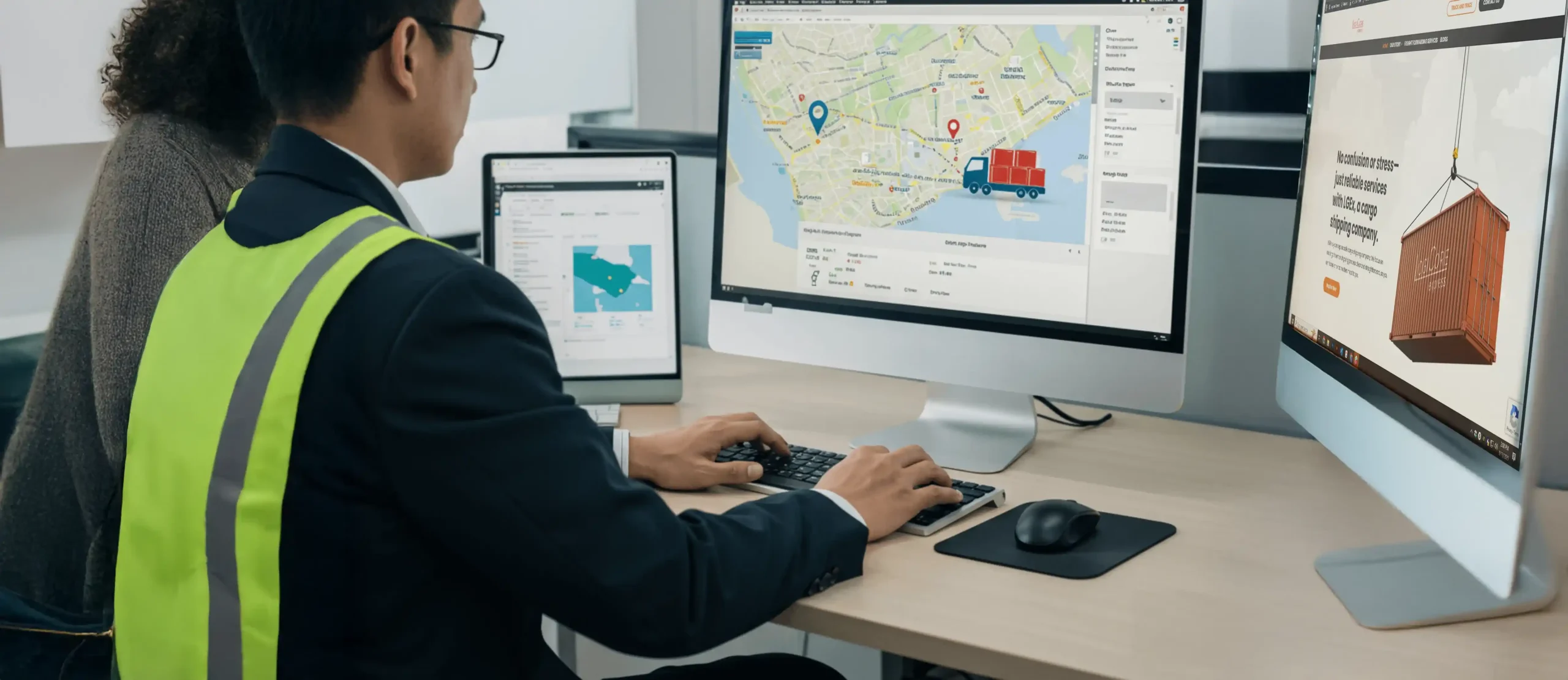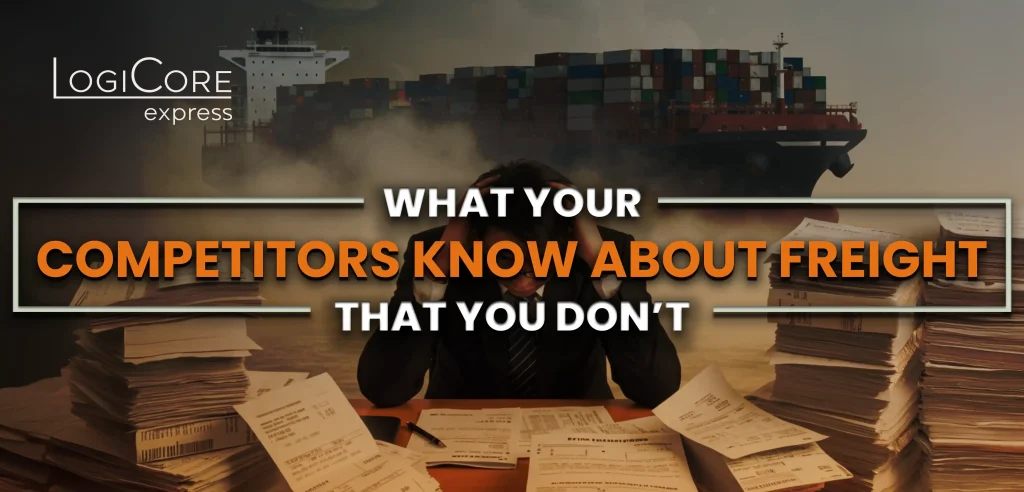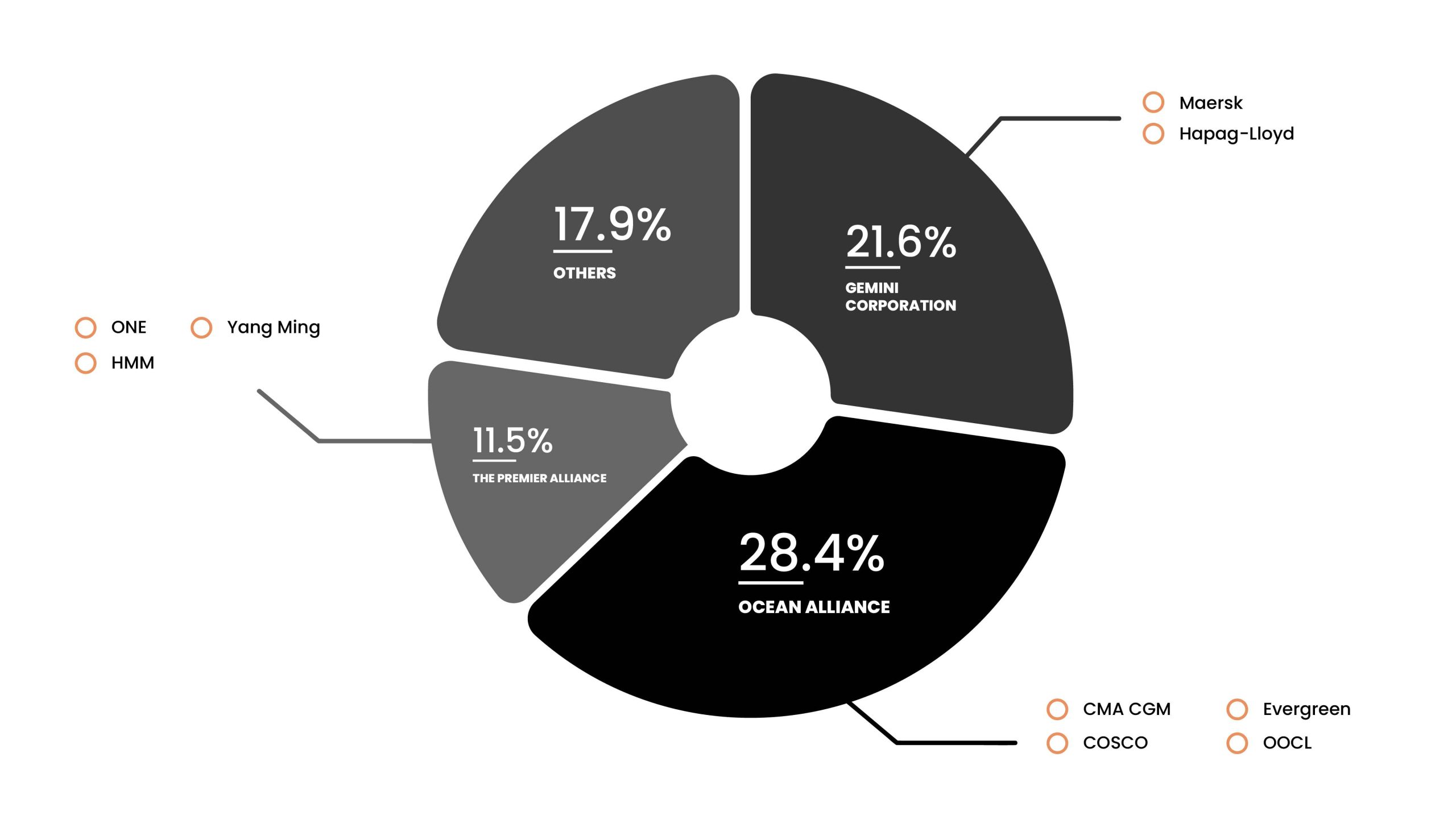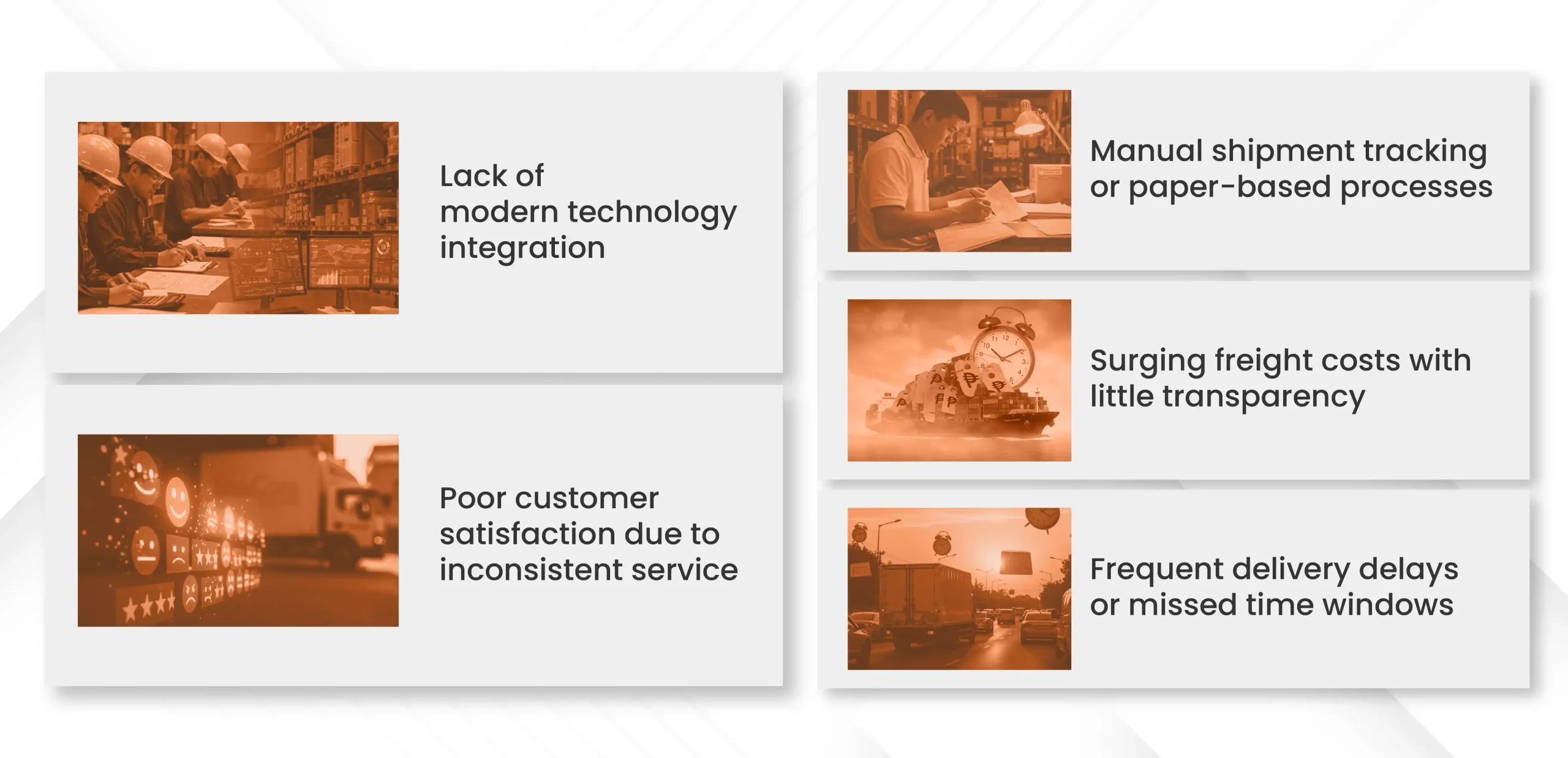Competition in freight and cargo shipping comes in various forms. Many companies still struggle to choose between old-school freight practices and modern freight management solutions.
Your competitors’ ability to deliver fast, get better rates, or retain top clients is not luck. It’s an effective implementation of freight strategies.
In this blog, we’ll uncover the freight secrets they don’t want you to know and show how the right partner can help you achieve the same results.
Table of Contents
Understanding Freight Management
- Defining Freight Management
- What Poor Freight Planning Does to Your Business
8 Freight Management Strategies Competitors Use to Stay Ahead
- Joining global shipping alliances
- Being agile in changing conditions
- Offering high-quality service
- Establishing a strong partnership
- Maintaining a strong reputation
- Aligning freight strategies with innovation
- Consolidating freight shipments
- Conducting Routine Freight Audits
Understanding Why Freight Management is Your Competitive Edge
Defining Freight Management
Freight management refers to the planning, implementation, and optimization of the movement of products or goods. It could be in different modes of transportation. Either by land (land freight), sea (sea freight), or air (air freight).
Freight management doesn’t stop once you book a shipment. To be effective, it must give your business better visibility, cut extra shipping costs, and ensure on-time deliveries.
What Poor Freight Planning Does to Your Business
Top-performing freight forwarders and logistics companies treat freight management as a strategy, not an added work. In a competitive market, poor freight planning can lead to:
Delayed shipments
Higher costs
Lost customer trust
Top 10 Freight Management Strategies Competitors Use to Stay Ahead
Your competitors won’t reveal everything, but their winning strategies are easy to spot if you know where to look. Here are the key factors that help them stay ahead in the cargo shipping industry.
2. Being agile in changing conditions
Like any business, the freight industry can face sudden challenges without warning. But with strong operational knowledge, you can stay on course. As a freight forwarder, you need real-time data to adjust your operations quickly and effectively.
For example, if a driver reports a delay due to traffic, reassigning transport can be tough. But with a transport management system (TMS), you can make fast decisions and avoid missing cut-offs.
A TMS not only helps reassign delayed transport but also streamlines coordination with carriers and freight brokers. This saves you from penalties and missed connections.

3. Offering high-quality service
Beyond efficient transit routing, one key factor that sets you apart is exceptional customer service. Clients value the ease of doing business. When your company understands and meets their needs, it becomes a major advantage. Every transaction should make working with you easier.
Here are a few ways to improve your service and better meet customer expectations:
- Ensure your services are easy to access
- Consider offering flexible or alternative business models
- Hire experts who can handle complex freight projects
- Train your team to solve customer problems effectively
4. Establishing a strong partnership
Many businesses succeed because they build strong relationships with their clients. Service-based partnerships often last longer because trust is built between two parties.
One key step to building that trust is being genuine in your intention. Show real interest in your client, their business, and have the right intent to support their needs.
5. Maintaining a strong reputation
When you fully understand your market, you position yourself as an industry expert. This builds a strong reputation for you and your business, making it easier for people to remember your name and trust your services. A good reputation also helps your business stand out and maintain value in a competitive industry.
Remember, every client has different pain points. To win their trust, you need to be the service provider that solves those problems.
For example, some clients may be great at international shipping but struggle with inland logistics. If your business specializes in inland freight, that’s an opportunity for you to grab.
Helpful tip: Focusing on a specific specialty not only boosts your brand it also leads to more word-of-mouth referrals.
6. Aligning freight strategies with innovation
The cargo shipping industry is evolving, and without innovation, you risk falling behind. As Hariesh Manaadiar puts it, success today comes from blending traditional shipping services with modern technology. Here are some key innovations shaping the industry:
The invention of the shipping container
A shipping container is a large, standardized metal box used to store and transport goods. It protects cargo during long journeys and makes loading, unloading, and transferring between ships, trucks, and trains faster and easier.
Use of intermodal freight trains
Intermodal freight trains are trains that carry containers that can easily transfer between ships, trucks, and other transport modes without unloading the cargo. This method improves efficiency, reduces handling, and cuts down shipping delays.
Deployment of automated container terminals
Automated container terminals use technologies, sensors, and software to move and manage containers at ports. Cranes, vehicles, and storage systems work with minimal human input, helping improve speed, safety, and accuracy in busy shipping ports.
Adoption of smart containers for real-time tracking
Smart containers are shipping containers equipped with GPS tracking technology. These tools monitor location, temperature, humidity, and movement in real-time.
8. Conducting Routine Freight Audits
Regularly reviewing your freight spend, carrier performance, and operational bottlenecks gives you valuable insights. These insights help you improve shipping efficiency and measure your performance as a service provider.
How Cargo Shipping Services from LGEx Makes a Difference
At Logicore Express, we offer end-to-end cargo shipping services that support your entire supply chain, including:
- Inter-island freight shipping
- Containerized and bulk cargo support
- Port-to-port delivery
- Cold chain and time-sensitive shipments
- Real-time cargo tracking
If you’re shipping nationwide, we will ensure your cargo arrives safely, on time, and with full visibility.
Conclusion
Your freight competitors know one simple truth: smart freight management drives performance, controls costs, and keeps customers happy. Many have already switched to strategy-driven and tech-powered shipping. The best part is you don’t have to do it alone.
By choosing a partner like Logicore Express, you can gain access to complete cargo shipping services, proven freight strategies, and reliable execution. This helps you win your customers and strengthen your competitive edge against your industry competitors.
Stand Out From Your Competitors with Logicore Express
Learn how you can optimize your freight operations and deliver faster, smarter, and more affordable cargo shipments with Logicore Express
CONTACT US TODAY





